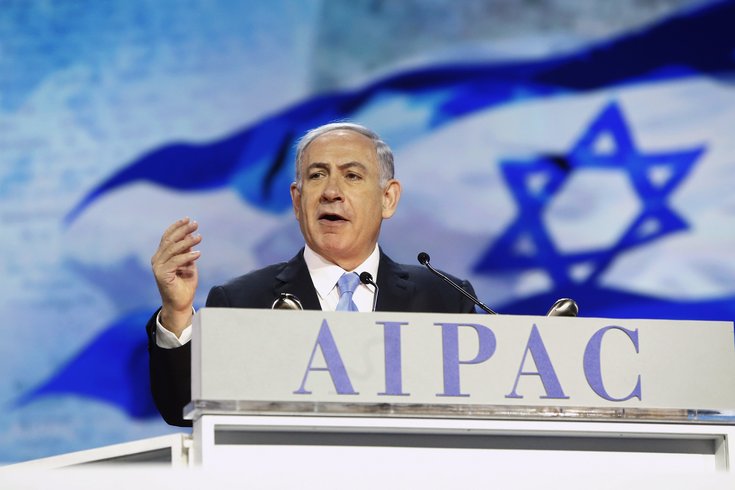Israel’s Prime Minister Benjamin Netanyahu said on Monday he was committed to working with United States President Donald Trump to advance peace efforts with the Palestinians. Netanyahu made the pledge in a speech to AIPAC, the largest US pro-Israel lobbying group.
The Trump administration is seeking agreement with Netanyahu’s right-wing government on limiting settlement construction on land the Palestinians want for a state, part of a US bid to resume long-stalled peace negotiations.
“Israel is committed to working with President Trump to advance peace with the Palestinians and with all our neighbors,” Netanyahu told the annual convention of American Israel Public Affairs Committee, or AIPAC.
Netanyahu also expressed confidence in a US-Israeli partnership for preventing Tehran from developing a nuclear weapon, following its 2015 nuclear deal with world powers, and for “confronting Iran’s aggression in the region.”
On the settlements issue, a round of US-Israeli talks ended last Thursday without agreement. Gaps remain over how far the building restrictions could go, according to people close to the talks.
Many Israelis had expected Trump, because of his pro-Israel campaign rhetoric, to give a green light for settlement expansion in the occupied West Bank. But Trump unexpectedly urged Netanyahu last month to “hold back on settlements for a little bit.”
There is skepticism in the US and Middle East over the chances for restarting Israeli-Palestinian diplomacy.
Peace talks have been frozen since 2014. Most countries consider Israeli settlements, built on land captured in a 1967 war, to be illegal.
Trump has expressed ambivalence about a two-state solution, the primary US policy for the past two decades, but he recently invited Palestinian President Mahmoud Abbas to visit.
